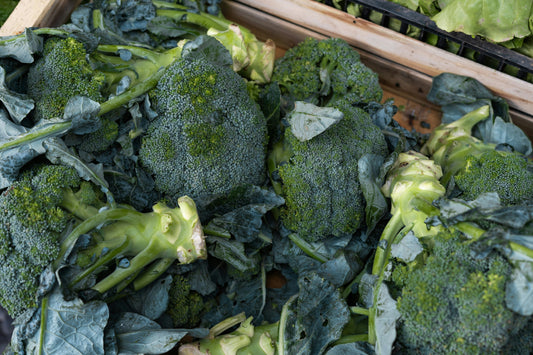When it comes to immune health, the key to unlocking a healthy immune system is consuming a varied and diverse range of colourful and nutrient-rich foods. The immune system relies on the foods we eat for optimal functioning. Other lifestyle factors like physical and emotional stress, accompanied with limited sleep can decrease your immune response and make you feel burnt out.
Fiction: I can boost my immune system with single foods, diets or supplements
There is no single food, diet, supplement, natural remedy or product on the supermarket shelf that will effectively ‘boost’ your immune system. The immune system is a complex combination of many different immune cells. Scientists are yet to figure out which cells respond to which stimuli. Healthy immune cells require consistent nourishment. If you predict you are not eating enough nutrients for example you don’t like vegetables, or you can’t eat vegetables due to stomach discomfort, then taking a multivitamin supplement can help bring about some health benefits. The same cannot be said for taking large doses of single nutrients. Certain nutrients can alter the way in which the immune system functions, the inclusion of these nutrients is therefore very important to optimise immune health:
- Vitamin C: found in dark green leafy vegetables, and red and orange fruits and vegetables as well as kiwifruit.
- Vitamin E: found in nuts, seeds, oils (canola, sunflower) and avocado
- Vitamin A: comes in two forms:
- Retinol - found in milk, cheese & butter.
- Carotenoids - found in carrots, capscium, kumara, pumpkin, oranges, squash, corn, lemon and in darky green leafy vegetables (spinach and broccoli)
- Selenium: found in nuts, egg, fish, steak, seeds and lentils
- Zinc: found in oysters, chicken, grains, chickpeas, peanuts, cheese, and milk
Fiction: Taking vitamin C supplements will prevent a common cold.
Taking regular vitamin C supplements may reduce the severity and/or duration of a common cold but it is yet to be proven effective in prevention of getting a cold. Starting to take vitamin C once you already have a cold has not been proven successful in reducing the length or severity of a cold.
Fact: Zinc supplements can reduce the duration of a common cold
Taking a zinc supplement with >75 mg/d of zinc acetate once you have come down with a cold has been shown to reduce the length of the cold and its associated symptoms.
Fact: Stress will weaken your immune system
When you’re stressed, the body's immune response is weakened and people become more susceptible to infections. Managing the stress, particularly chronic stress, can assist in fighting the germs.
Fiction: You will catch a cold from being cold
Remember all those times as a child when your mother or grandmother used to yell out as you were running out the door “rug up warm or you’ll catch a cold”? As it turns out, the main reason we catch colds in the winter is from spending more time indoors within close proximity to each other.
Fact: North American Ginseng can shorten the length of your cold
North American ginseng extracts (200 mg twice daily for four months) have been proven effective in shortening the length of a common cold in adults. Ginseng is a type of herb that has been used in medicine for as long as 400 years.
Fiction: Garlic supplements can help my cold
While garlic and ginger are known for their natural antimicrobial properties, unfortunately the jury is still out on the effectiveness of supplements. Results are very mixed and there is no clear evidence to suggest garlic supplementation will effectively treat or prevent the common cold or flu.
Fact: Probiotics can help keep your immune system healthy
Probiotics and helpful little bacteria that have been shown to help keep your immune system healthy. They can decrease the number of colds that you catch and shorten the length of time that you may have a cold. Probiotics can be very expensive and the evidence to suggest their effectiveness is still rather limited. They should be used to compliment healthy dietary habits.
If you’re wanting to take supplements to support your immune system then the most supported, cost-effective strategy is to take regular vitamin C tablets and adding in a Zinc supplement if you feel you have come down with a cold. Remember that prevention is better than treatment so keep your immune system strong by following a well-balanced, and nutritious diet.




